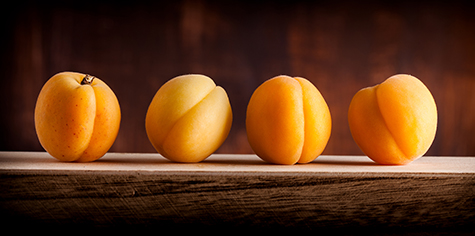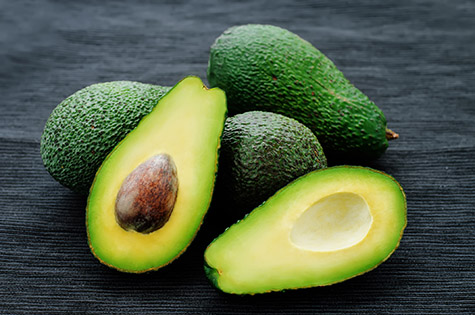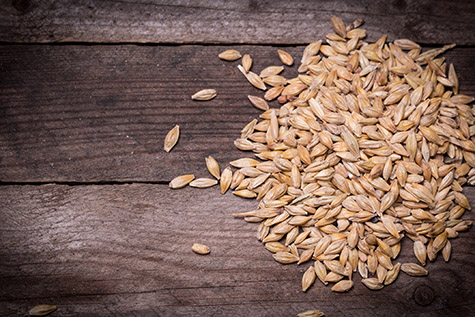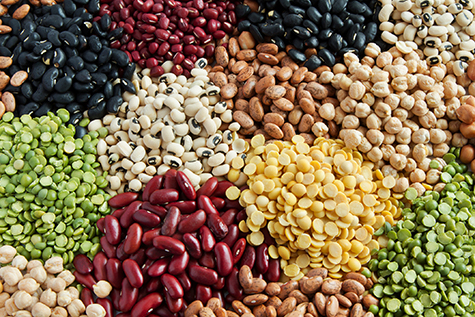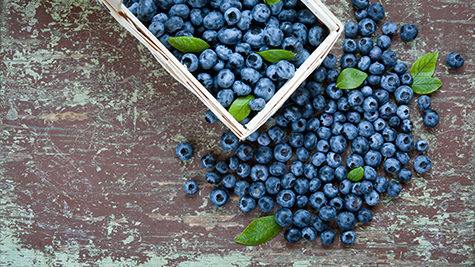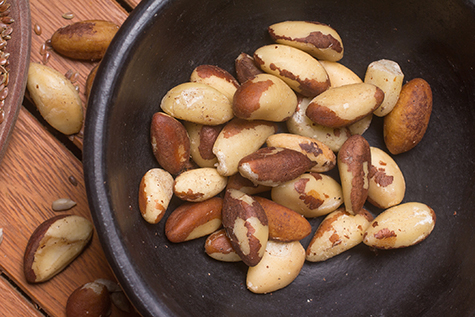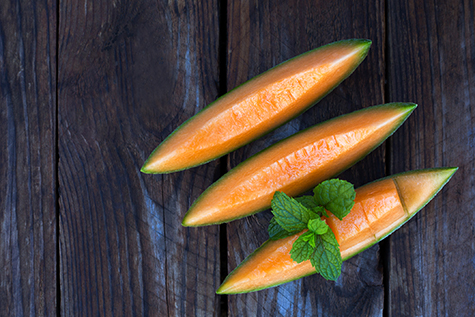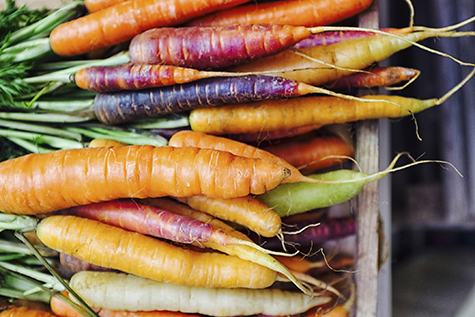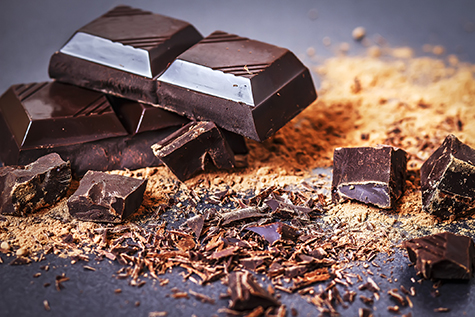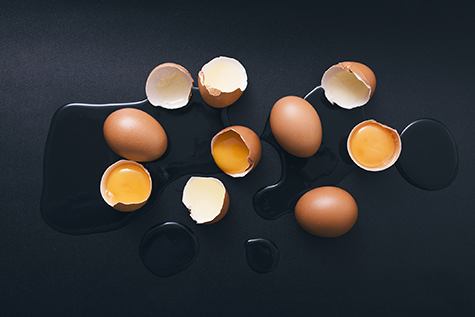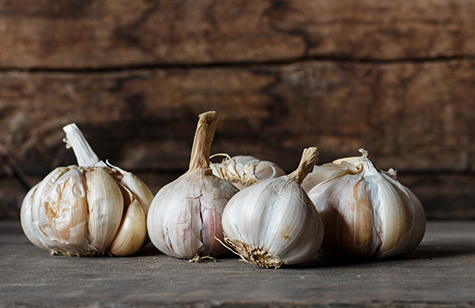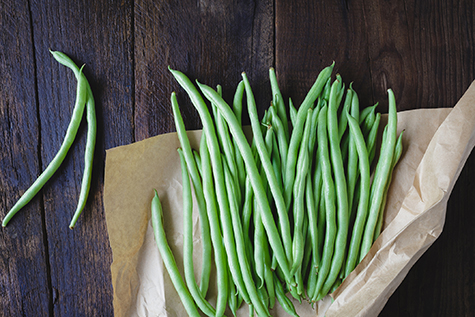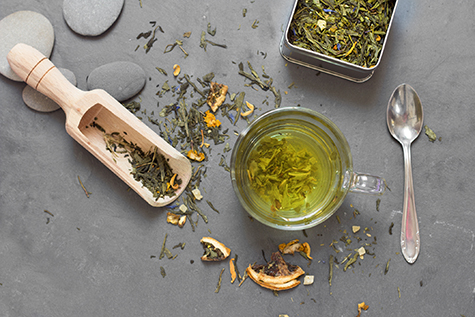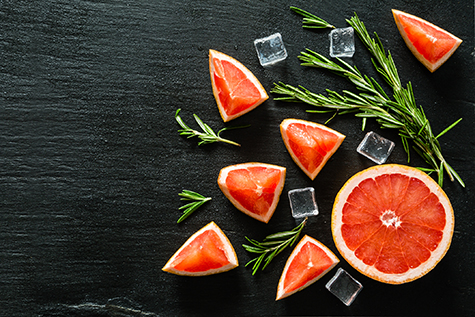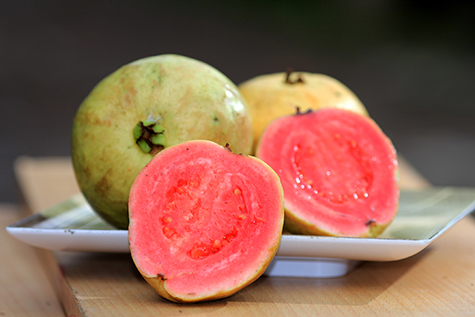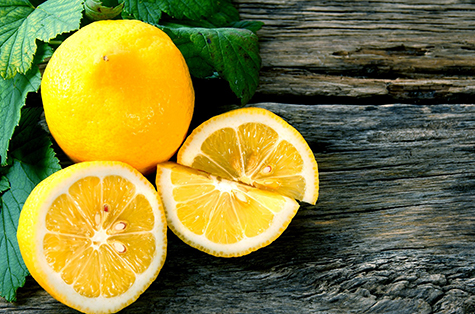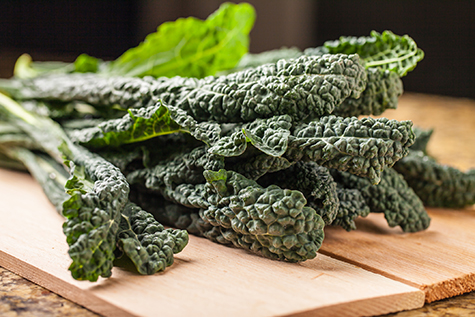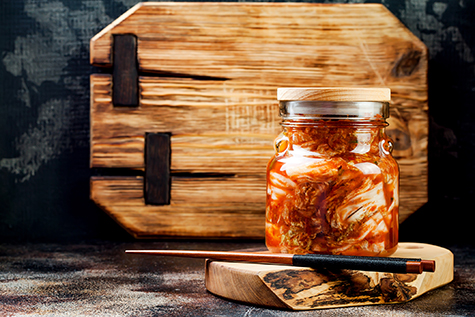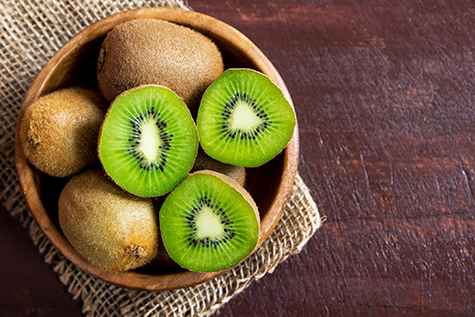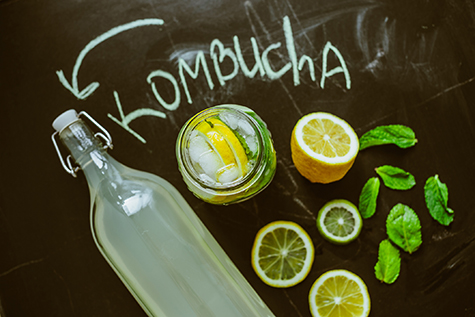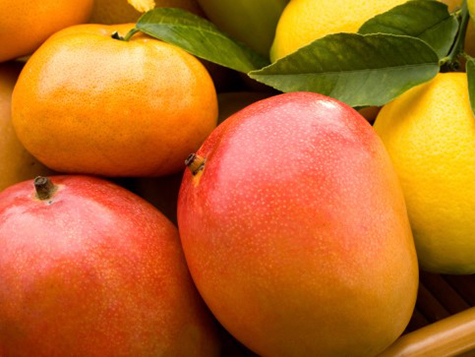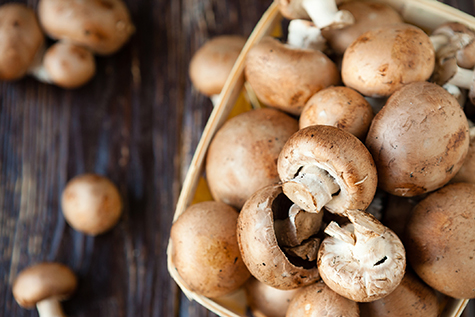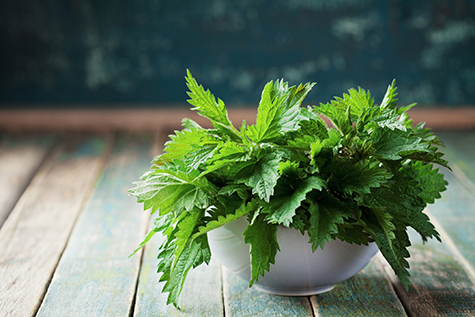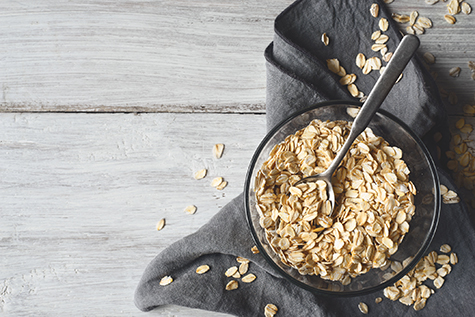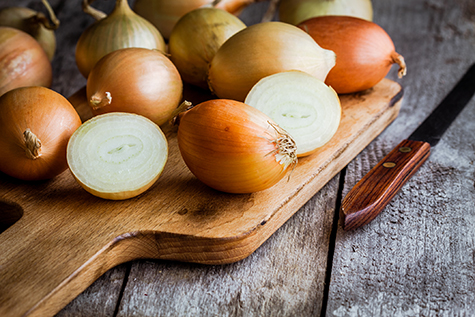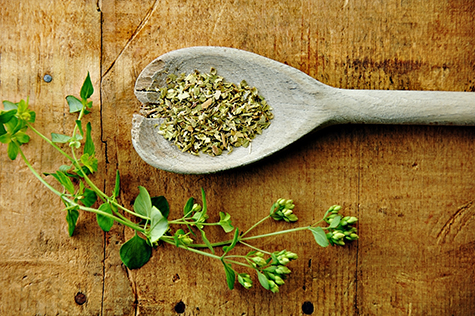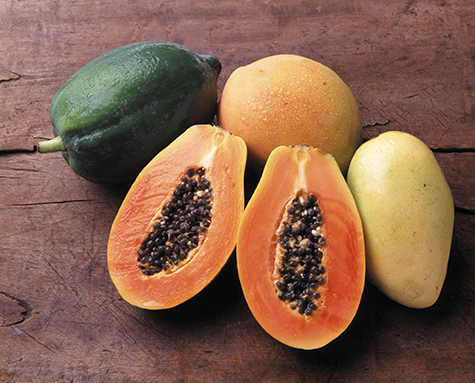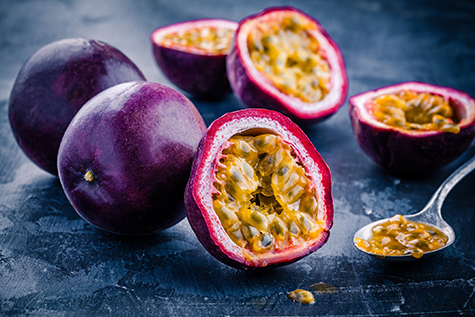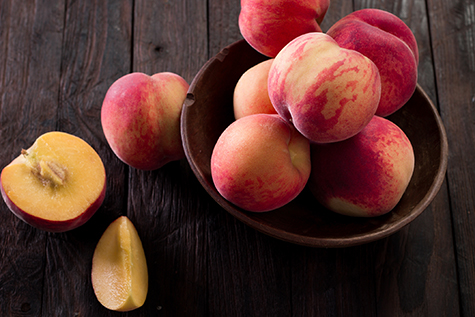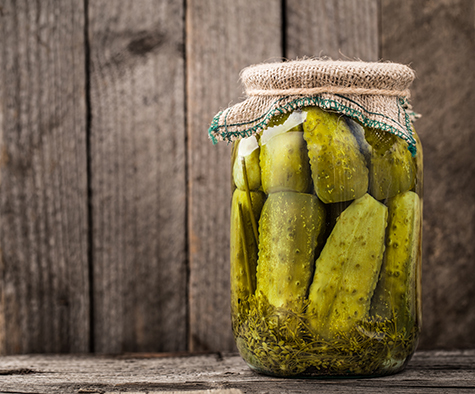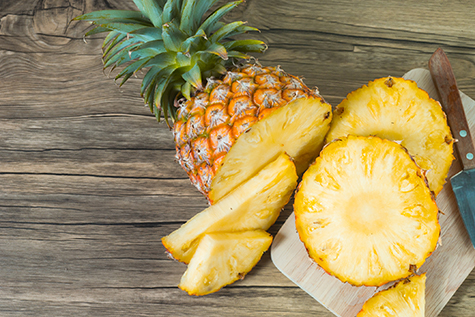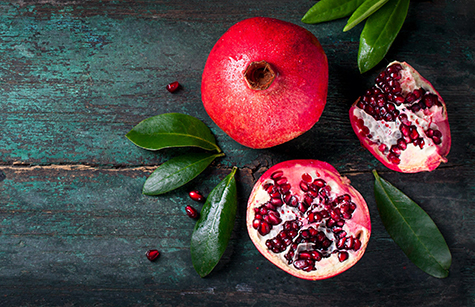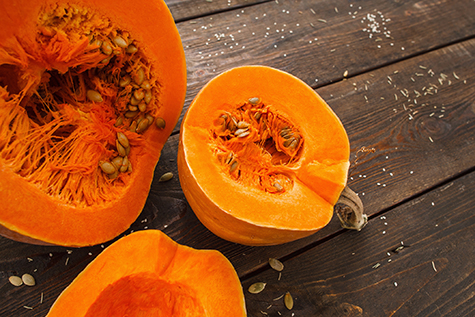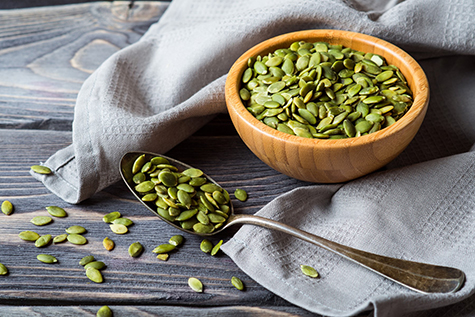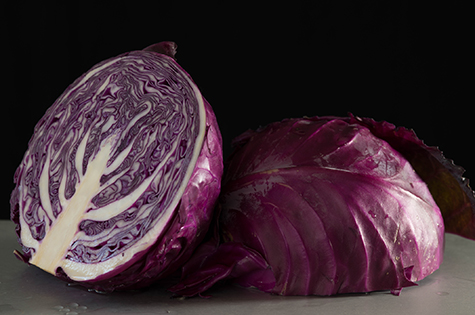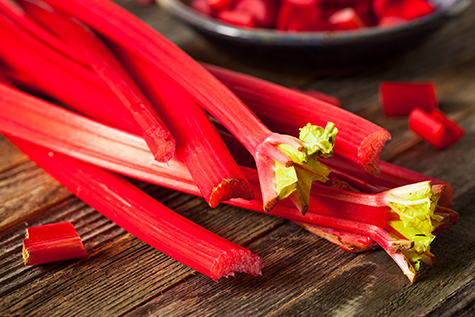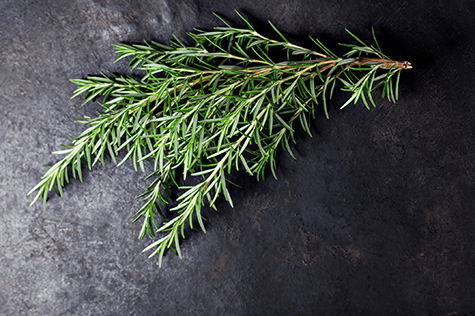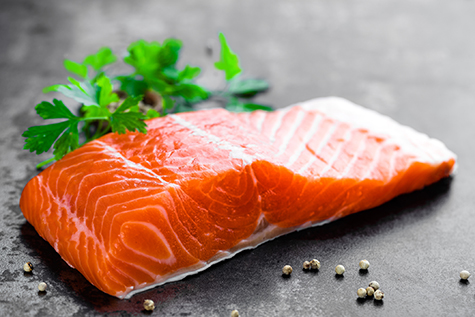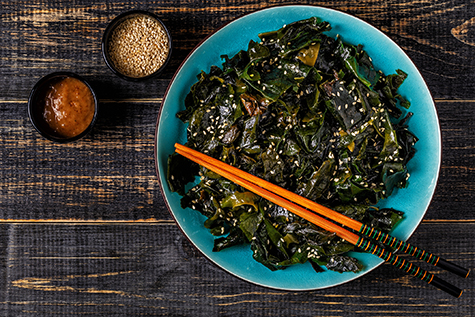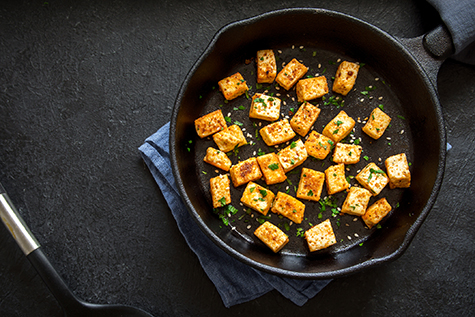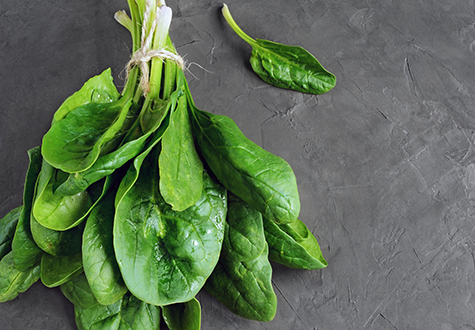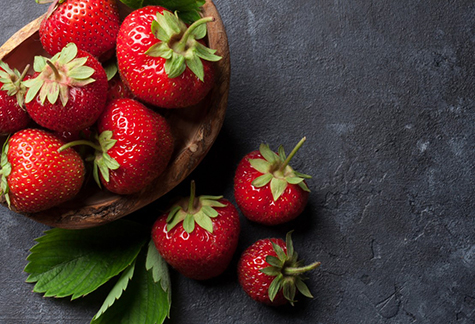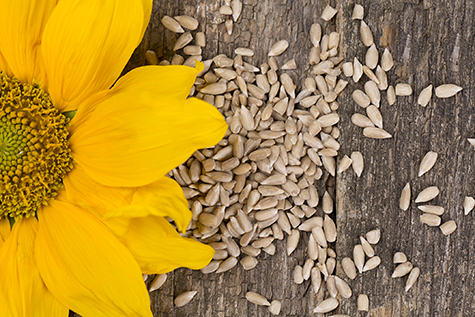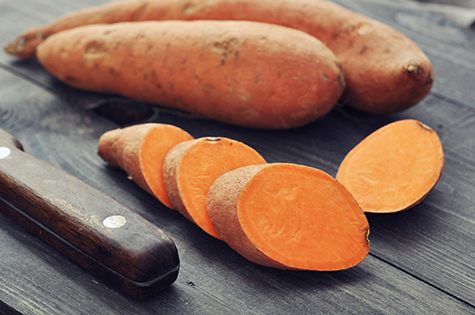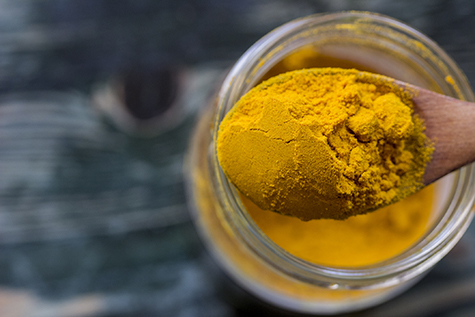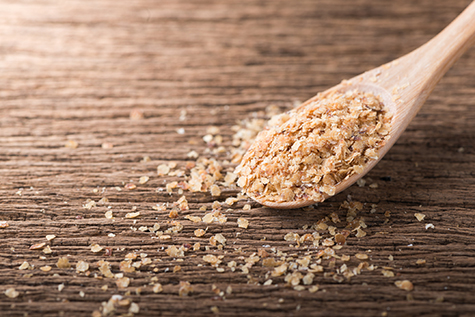The Top 50 Foods for Your Immune System

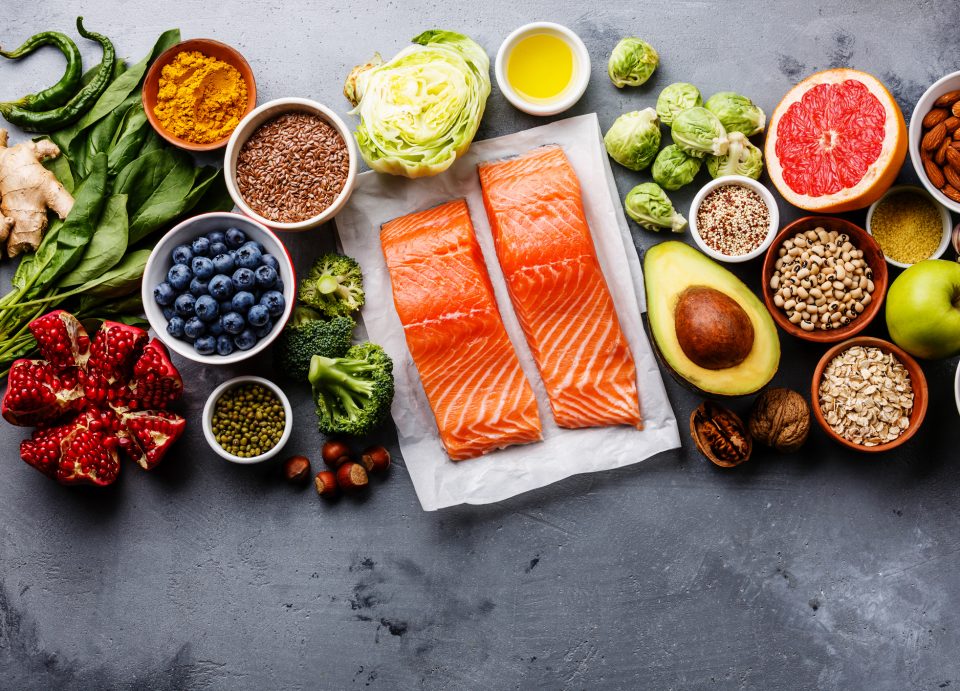
As cold and flu season comes to an end, you may breathe a sigh of relief but keep in mind that a strong immune system is key any time of year. Every day our immune systems protect us against viruses, bacteria and rogue abnormal cells that could even lead to cancer. Antioxidants and vitamins like vitamins A, C, D, E, selenium, and zinc are one crucial piece of the immune picture as are foods with fiber that support a healthy gut microbiome. Here is the ultimate FoodTrients® list of the top 50 foods that boost the immune system to keep you healthy this spring and beyond.
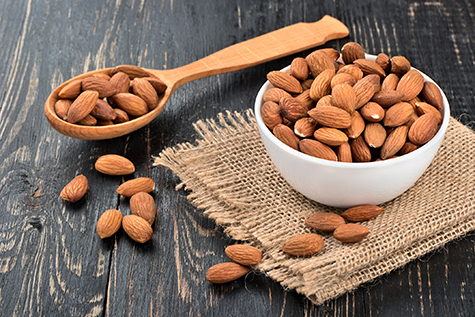 1. ALMONDS
1. ALMONDS
When it comes to preventing and fighting off colds, vitamin E tends to take a backseat to vitamin C. However, vitamin E is key to a healthy immune system as the major fat-soluble antioxidant in the body. It is required for protection of all cell walls from free radical damage which can suppress the immune system. Vitamin E acts to optimize the immune response and even a one-ounce serving of almonds provides nearly 30% of the recommended daily amount required.
2. APRICOTS
Fresh or dried, sweet apricots support the immune system. Not only are they high in fiber to support a healthy microbiome in the gut – an important part of our immune system – but they are a rich source of vitamin A which has been linked to a strong immune system in studies.
3. AVOCADO
A fruit packed with healthy, unsaturated fatty acids combined with antioxidants like vitamins E and C, avocados are critical to the immune system. Versatile and delicious, their unique blend of healthy fats that support the outer coating of all cells combined with nutrients known to support the immune system are a winning combination for health.
4. BARLEY
This whole grain has a special compound called butyrate, a short-chain fatty acid, which has been linked to a healthy microbiome in the gut, lower levels of inflammation and even reduced colorectal cancer rates. Make barley for breakfast instead of oats or prepare it as a high fiber side dish at lunch or dinner.
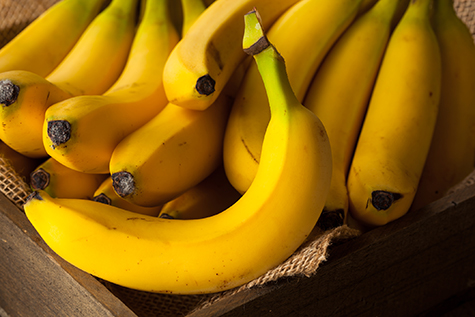 5. BANANAS
5. BANANAS
The ultimate on-the-go convenience food, bananas are known to sooth the gut. In this way, they also support a properly functioning immune system. At 3 grams per medium-sized fruit, bananas keep your good gut microbes happy and your digestive system moving smoothly.
6. BEANS
All beans/legumes are rich sources of zinc which plays a key function in the immune system. The amount of zinc recommended per day is 8-11mg and though many people associate it with animal foods such as meat, beans are a great plant-based option. A half-cup of chickpeas gets you well on your way to meeting your needs with 1.3mg while baked beans have even more at 3mg in the same serving.
7. BLUEBERRIES
Blueberries contain a special combination of gut supporting fiber, antioxidants that quench free radicals and protect cells from damage and vitamin C to boost the immune system. Animal studies have found that the antioxidants in blueberries specifically increased lifespan and slowed the aging process – perhaps because they do offer so much protective support from external damage.
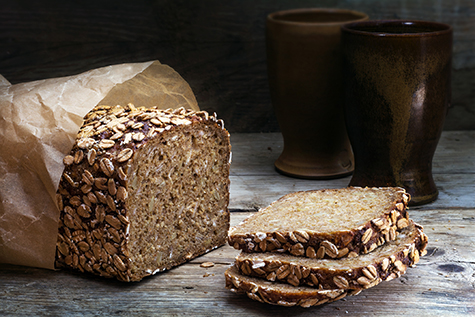 8. BRAN
8. BRAN
Found commonly in muffins and cereal, there’s a reason bran is associated with a healthy immune system. A special source of a short chain fatty acid called butyrate which occurs in the colon when high fiber foods are getting fermented, bran has a direct link in this way to supporting the immune system through a healthy microbiome.
9. BRAZIL NUTS
One single Brazil nut provides 160% of the Recommended Daily Allowance (RDA) of selenium – a mineral that supports the immune system and acts as an antioxidant. They also contain many other antioxidant phenolics and flavonoids in addition to tocopherol/vitamin E, linked to proper immune system as well. Even small amounts of Brazil nuts can be beneficial because of their rich nutrition status.
10. CANTALOUPE
The orange color of this melon indicates that it contains important antioxidant carotenoids like Vitamin A that are known to boost the immune system. Packed full of vitamin C and fiber as well, include cantaloupe in the diet to support your health and nourish the healthy bacteria in your gut to support immunity.
11. CARROTS
Carrots are rich sources of antioxidants that are known to support the immune system like beta-carotene and vitamins A, C, and B-vitamins. The orange color gives it away as rich in vitamin A which studies show inhibits B-cell proliferation and limits programmed cell death in the same types of cells – both of which are critical to supporting the immune system. B cells create antibodies that protect our immune system against invasion.
12. COCOA
This bitter bean contains more phenolic antioxidants than most other foods. Antioxidant flavonoids including catechin, epicatechin, and procyanidins are dense in this bitter powder also used to make chocolate bars and products. Studies show that when diets are enhanced with cocoa, the immune system particularly in the intestines/gut are strengthened.
13. EGGS
Think twice before ditching the yellow yolks of your eggs! Though they do contain fat and cholesterol, they also hold significant amounts of protein, zinc, choline, and vitamins A and D. Vitamin D is a known immune booster which inhibits T-cell proliferation, decreases, the expression of interleukin-2 and interferon-γ – all critical pieces of how the immune system responds.
14. GARLIC
Everyone’s favorite herb, garlic is an allium vegetable with sulfur-containing compounds that act as antioxidants to protect cells from damage as well as warding off bacteria and viruses. Known as a potent anti-microbial, add garlic to sauce, salad dressing, spread it on toasted whole grain bread or roast it up to serve with dinner tonight for a flavorful boost.
15. GREEN BEANS
A high fiber green veggie with a slightly higher carbohydrate level than other leafy crucifers makes green beans satisfying and delicious. They also have an underlying immune support because they may increase butyrate, a short chain fatty acid that has been linked to stoking both the gut microbiome as well as the immune system.
16. GREEN TEA
Packed full of powerful antioxidants, namely flavonol epigallocatechin-3-gallate (EGCg) a potent polyphenol, green tea plays a role in protecting the body from oxidative damage and also in protecting the immune system. Studies have shown that green tea can protect against immune dips due to sun burn and damage done to the largest organ in the body.
17. GRAPEFRUIT
The perfect way to start the day – or to snack – for fiber and a potent boost of vitamin C, this citrus fruit helps the immune system in many ways. Aside from vitamin C, known to support the immune system, other immune-boosting antioxidants in grapefruit include naringenin, limonin, beta-carotene and lycopene.
18. GUAVA
Forget citrus, berries and bell peppers – tropical guava is in fact higher in vitamin C than all the others at 377mg in one fruit. That’s over 600% the daily value you need per day. If you have access, snack on fresh guava or blend it into a juice or smoothie for a wonderful boost to the immune system.
19. LEMON
Similar to other citrus, lemon is high in potent vitamin C but also a helpful replacement for flavor that offers health benefits. Instead of high fat, sugar or sodium ingredients used in sauces or dressings, lemon is a bright, zesty addition to many dishes that also helps ward off colds and other viruses as an added bonus.
20. KALE
One cup of this leafy green provides nearly all your vitamin C needs at 70% and all B-vitamins (aside from B-12), all of which can support and boost the immune system. Choose the variety you enjoy the most – curly, baby or dinosaur and use it fresh in salads, baked into chips, sautéed or wilted, or even blended up in a smoothie.
21. KIMCHI
A traditional Korean fermented cabbage, other cultures include this spicy garnish – think sauerkraut for example. Foods that are fermented and kept cold such as pickles and kombucha like kimchi contain good bacteria that can help support our own gut microbes. The gut microbiome has been linked to proper immune functioning so it’s important to include a variety of fermented foods throughout the week.
22. KIWI
Sweet green kiwi fruit are naturally packed full of essential nutrients that boost the immune system including folate and vitamin C. Vitamin C boosts white blood cells to fight infection and acts as an important antioxidant in the body to ward off damage that occurs both naturally from metabolism and general functioning and from external sources including the environment.
23. KOMBUCHA
This fermented tea beverage – lightly sweet and slightly vinegar in taste – contains good bacteria that can support the immune system through boosting good bacteria in the gut. Research shows that the desirable bacteria in fermented foods may compete for nutrients with damaging pathogens and may enhance the gut immune response against pathogenic bacteria.
24. MANGO
Fresh or dried, sweet mangos support the immune system in a variety of ways including fiber to support a healthy microbiome in the gut and vitamin A which has been linked to a strong immune system in studies. When purchasing, make sure when buying dried mangos to choose the variety without added sugar.
25. MUSHROOMS
Containing some very special compounds for the immune system, specifically beta-glucans which are a type of polysaccharide or carbohydrate as well as vitamin D, mushrooms are a powerhouse. Beta-glucans contain known immunomodulating properties. Keep in mind that regular mushrooms you can find in the grocery store also contain immune-boosting properties though shiitake, maitake, and reishi are known to support it in particular and may be used medicinally.
26. NETTLES
Native to the Pacific Northwest and other wooded areas, make sure this stinging plant is processed and cooked carefully to remove its damaging effects. Higher in protein than many other plans, nettles are also high in immune-boosting nutrients like vitamins C and A. Fight Allergies and Inflammation with Nettles.
27. OATS
Another high fiber food that gets fermented in the colon, versatile oats may help the body create more helper T cells which are critical for the immune system. Studies show that short chain fatty acid, butyrate, can protect the lining of the intestines from microbes and prevent an inflammatory response from launching there. Better yet, oats are a rich source of critical mineral zinc with over 1 mg per ½ cup serving.
28. ONION
Onions of any variety – yellow, red, sweet – and cooked or raw as part of a sauce, salad or sandwich support the human immune system. Packed with antioxidants like quercetin, onions contain antimicrobial properties that help ward off viruses and bacteria that could harm the body.
29. OREGANO
This Italian herb has proven support for the immune system in animal studies. When dosed in chicken feed, an improvement in gut microbes was observed including increases in good bacteria and a reduction in potentially damaging ones. Though more studies are needed to understand how this herb can support human health, it has been shown to work as an anti-microbial and anti-bacterial so add it liberally to your recipes in sauces and marinades, as a garnish and in salad dressings.
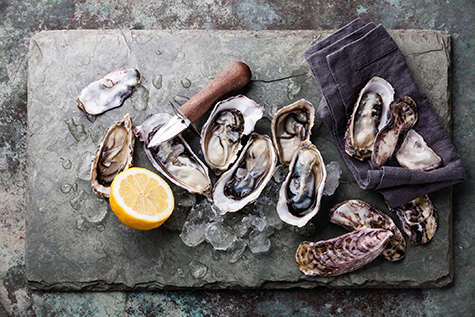 30. OYSTERS
30. OYSTERS
Containing the most zinc per ounce of any other common food, oysters are an immune boosting seafood. Zinc helps the body fight infection and balance the immune response. A 3-ounce serving of oysters provides 74mg which far exceeds the amount required by the body in one day.
31. PAPAYA
Sweet tropical papaya is an immune boosting powerhouse. Eat it fresh for breakfast, as a snack or healthy dessert to boost fiber which supports a healthy microbiome in the gut and vitamin A which has been linked to a strong immune system in studies. Naturally sweet without any fat or cholesterol, papaya is a nutrient-rich way to sooth a sweet-tooth.
32. PASSIONFRUIT
This tropical treat has the added benefit of fiber for the gut microbiome, vitamin C and unique antioxidants that boost immunity. Some studies have indicated that 100 grams of passionfruit can provide upwards of 30% of your daily vitamin C needs. If you live in a tropical climate and have access to fresh passionfruit, make sure to include it for a fresh breakfast, snack or dessert.
33. PEACH
Stone fruit may seem like a sweet dessert to enjoy in the summer, but in fact, peaches have important immune-boosting properties as well. Rich in fiber to support a healthy gut – one of the foundations of our immune system – peaches and other stone fruit also contain antioxidant vitamins like vitamin C and carotenoids.
34. PICKLES
Studies show that foods that are fermented and kept cold such as pickles, kombucha, and kimchi contain good bacteria that can help support the bacteria living in the gut. The human microbiome has been linked to a stronger immune system so it’s important to include a variety of fermented foods throughout the week. When choosing pickles, get the kind in the cold section vs the ones on the shelves for greater potency of good bacteria.
35. PINEAPPLE
This favorite tropical fruit combines a high fiber content with 80mg of vitamin C in 1 cup and unique compounds such as bromelain that aid digestion so that the body can properly break down and absorb other critical nutrients. Use pineapple as a sweet treat to replace other sugary desserts which can actually damage the immune system.
36. POMEGRANATE
These beautiful red fruits are rich in antioxidants called flavonoids which support the cardiovascular system and may help fight free radical damage to minimize any challenges the immune system faces daily. Better yet? Pomegranate arils are loaded with vitamin C. They have proven antimicrobial, antioxidant, anticancer, anti-inflammatory properties.
37. PUMPKIN
A classic winter squash, pumpkins sooth the gut and stoke the immune system. Packed with fiber, and vitamins A and C, the flesh of pumpkins is an important food to include in the diet any time of year. Add it to soups, stews, hot cereal, and even smoothies to boost important immune properties.
38. PUMPKIN SEEDS
Pumpkin seeds, also called pepitas, are very rich sources of zinc which is important for the immune system – both helping to control the way it reacts as well as aiding in fighting infection. Higher than many other seeds, whole roasted, unshelled pumpkin seeds contain about 10 mg of zinc per 3.5 ounces.
39. PURPLE CABBAGE
Another cruciferous vegetable in the Brassica family, any color cabbage contains liver detoxifying compounds that can help support the immune system. The benefits in cabbage – especially purple cabbage – have been linked both to antioxidant compounds as well as vitamins C and E. Special compounds in cabbage may affect the elimination of cancer-causing cells.
40. RHUBARB
Used in Chinese traditional medicine, rhubarb is known to support health in a variety of ways including boosting the immune system. Rich in fiber for the good microbes in the gut, tart rhubarb also contains vitamin C and B-vitamins to support the body’s natural defense systems.
41. ROSEMARY
This herb may be growing in your garden right now and has proven support for the immune system in animal studies. In chickens, adding rosemary showed an improvement in gut microbes including increases in good bacteria and a reduction on potentially damaging ones. Rosemary has been shown to work as an anti-microbial and anti-bacterial agent as well to support immunity.
42. SALMON
Aside from protein in salmon – critical to the immune system – this fatty fish also includes a healthy dose of anti-inflammatory omega 3 fatty acids. Essential to get from the diet because the body can’t make them on its own, studies have shown that getting enough omega’s from foods like salmon also support immunity. The American Heart Association recommends two servings of salmon per week.
43. SEAWEED
Edible seaweed snacks and algae in your food could have some unexpected positive health benefits for the immune system. Seaweed – also called sea vegetables – contains a special compound called beta-glucans which studies have shown support the body’s immune system by protecting against environmental damage and supporting detoxification pathways.
44. SOYFOODS — TOFU AND TEMPEH
Protein plays a critical role in supporting the immune system and soy foods like tofu and tempeh are a rich source of both protein as well as antioxidant compounds. Studies have found that genistein, an antioxidant called isoflavone in soy helps to protect cells from DNA damage. Without enough protein in the diet, studies show a significant impairment of the immune system including cell-mediated immunity, phagocyte function, secretory immunoglobulin A antibody concentrations, and cytokine production.
45. SPINACH
A versatile, soft dark leafy green, you can add spinach to eggs, casseroles and stews or even blend it into a smoothie for a boost of nutrients including antioxidant vitamins C and E as well as lutein and zeaxanthin and zinc for the immune system.
46. STRAWBERRY
Everyone’s favorite berries contain more vitamin C per serving than some citrus and including them in the diet has been linked to a boost in immunity. Strawberries contain potent free radical scavenging antioxidants. Studies have shown promise that after intense exercise such as an ultramarathon that vitamin C may help to combat dips in the immune system so include foods rich in this antioxidant regularly pre-and post-workout.
47. SUNFLOWER SEEDS
Sunflower seeds are a good source of protein and healthy fat as well as some nutrients critical to the immune system. Vitamin E and zinc combine to create an immune boosting response. Snack on sunflower seeds (bonus if you shell them yourself) or sprinkle on salads or into granola.
48. SWEET POTATOES
Sweet potatoes contain heart healthy fiber, vitamin A, and lycopene all of which can support a healthy immune system. Vitamin A exhibits some very specific immune boosting properties in studies including a decrease in TH2-cell cytokines and positively affecting general lymphocyte functions such as B-cell proliferation.
49. TURMERIC
Famous as an anti-inflammatory, turmeric can be used in cooking to support the immune system as well. It’s phenolic compound, curcumin, has proven support mechanisms including acting as an immunomodulatory agent that can curb the activation of T cells, B cells, macrophages, neutrophils, natural killer cells, and dendritic cells.
50. WHEAT GERM
Studies show that whole grains, including whole wheat, bran and wheatgerm, are potent health-boosting foods because of their vitamin, mineral and fiber content. Full of zinc, vitamin E, folate and magnesium, wheat germ is the center of the wheat kernel, where many of the nutrients are held. Sprinkle wheat germ on your morning cereal or oats, blend into a smoothie or even dust onto your salad for an immune-boosting nutrient addition.
What are your favorite foods for supporting the immune system? Let us know in the comments!
RESOURCES
Blumberg JB, Camesano TA, Cassidy A, Kris-Etherton P, Howell A, Manach C, Ostertag LM, Sies H, Skulas-Ray A, Vita JA. Cranberries and their bioactive constituents in human health. Advances in Nutrition: An International Review Journal. 2013;4(6):618-32.
Byrne DH, Noratto G, Cisneros-Zevallos L, Porter W, Vizzotto M. Health benefits of peach, nectarine and plums. InII International Symposium on Human Health Effects of Fruits and Vegetables: FAVHEALTH 2007 841 2007 Oct 9 (pp. 267-274).
Calder PC, Kew S. The immune system: a target for functional foods? British Journal of Nutrition. 2002 Nov;88(S2):S165-76.
Calder PC. Immunomodulation by omega-3 fatty acids. Prostaglandins, leukotrienes and essential fatty acids. 2007 Nov 1;77(5-6):327-35.
Casura LG. The Lowly Nettle: An Original, Springtime Superfood. Townsend Letter for Doctors and Patients. 2001 May 1(215):39.
Chandra RK. Nutrition and the immune system: an introduction. The American journal of clinical nutrition. 1997 Aug 1;66(2):460S-3S.
Clementi EM, Misiti F. Potential health benefits of rhubarb. InBioactive Foods in Promoting Health 2010 (pp. 407-423).
Devi Ramaiya S, Bujang JS, Zakaria MH, King WS, Sahrir S, Arif M. Sugars, ascorbic acid, total phenolic content and total antioxidant activity in passion fruit (Passiflora) cultivars. Journal of the Science of Food and Agriculture. 2013 Mar 30;93(5):1198-205.
Franciosini MP, Casagrande-Proietti P, Forte C, Beghelli D, Acuti G, Zanichelli D, dal Bosco A, Castellini C, Trabalza-Marinucci M. Effects of oregano (Origanum vulgare L.) and rosemary (Rosmarinus officinalis L.) aqueous extracts on broiler performance, immune function and intestinal microbial population. Journal of applied animal research. 2016 Jan 1;44(1):474-9.
Hamer HM, Jonkers DM, Venema K, Vanhoutvin SA, Troost FJ, Brummer RJ. The role of butyrate on colonic function. Alimentary pharmacology & therapeutics. 2008 Jan 1;27(2):104-19.
Jagetia GC, Aggarwal BB. “Spicing up” of the immune system by curcumin. Journal of clinical immunology. 2007 Jan 1;27(1):19-35.
Kapusta-Duch J, Kopec A, Piatkowska E, Borczak B, Leszczynska T. The beneficial effects of Brassica vegetables on human health. Roczniki Państwowego Zakładu Higieny. 2012;63(4).
Katiyar SK. Skin photoprotection by green tea: antioxidant and immunomodulatory effects. Current Drug Targets-Immune, Endocrine & Metabolic Disorders. 2003 Sep 1;3(3):234-42.
Kau AL, Ahern PP, Griffin NW, Goodman AL, Gordon JI. Human nutrition, the gut microbiome and the immune system. Nature. 2011 Jun;474(7351):327.
Lobo V, Patil A, Phatak A, Chandra N. Free radicals, antioxidants and functional foods: Impact on human health. Pharmacognosy reviews. 2010 Jul;4(8):118.
Miguel MG, Neves MA, Antunes MD. Pomegranate (Punica granatum L.): A medicinal plant with myriad biological properties-A short review. Journal of Medicinal Plants Research. 2010 Dec 29;4(25):2836-47.
Mora JR, Iwata M, Von Andrian UH. Vitamin effects on the immune system: vitamins A and D take centre stage. Nature Reviews Immunology. 2008 Sep;8(9):685.
National Institutes of Health. Zinc. https://ods.od.nih.gov/factsheets/Zinc-HealthProfessional/. Accessed 4/27/18.
Pérez-Cano FJ, Massot-Cladera M, Franch À, Castellote C, Castell M. The effects of cocoa on the immune system. Frontiers in pharmacology. 2013 Jun 4;4:71.
Slavin J. Fiber and prebiotics: mechanisms and health benefits. Nutrients. 2013 Apr 22;5(4):1417-35.
Ströhle A, Hahn A. Vitamin C and immune function. Medizinische Monatsschrift fur Pharmazeuten. 2009 Feb;32(2):49-54.
Todays’ Dietitian. Health Benefits of Sea Vegetables. http://www.todaysdietitian.com/newarchives/0616p46.shtml. Accessed 4/27/18.
Yang J. Brazil nuts and associated health benefits: A review. LWT-Food Science and Technology. 2009 Dec 1;42(10):1573-80.
